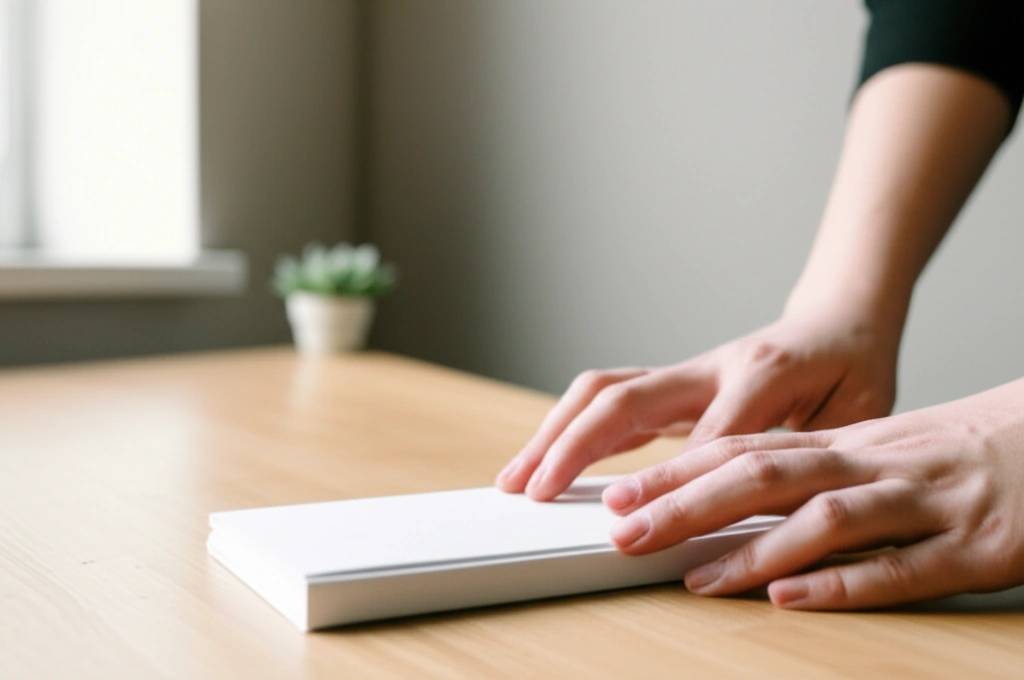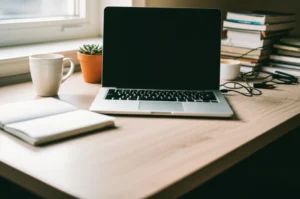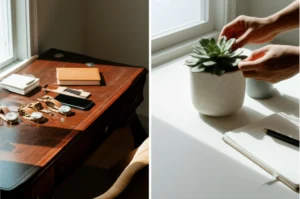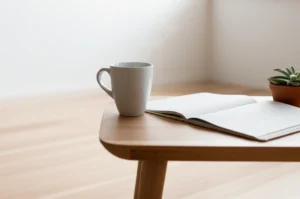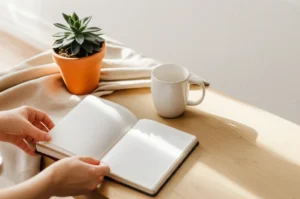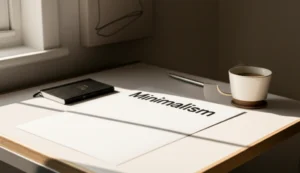You ever feel like your brain is drowning in clutter — not just physical stuff, but endless thoughts, obligations, and that never-ending scroll on your phone? Yeah, me too. That’s where the psychology of minimalism swoops in like a breath of fresh air. It’s not just about tossing out old socks or decluttering your desktop; it’s about clearing the mental fog that weighs you down so you can truly focus on what lights you up.
But here’s the real talk: minimalism isn’t a magic wand. For every benefit, there can be drawbacks if it’s done blindly or too rigidly. Understanding the psychology behind it can help you bring balance — to reap the rewards without the regret. So, let me walk you through what this means, why it matters, and how you can take gentle steps toward a more intentional, peaceful life.
What Psychology Of Minimalism Means
Breaking It Down Simply
At its core, “psychology of minimalism” is about simplifying your inner world, not just your space. Yes, a tidy room can calm you — but the bigger win is clearing mental distractions like overthinking, digital noise, or exhausting commitments. It’s about choosing what truly matters so your brain isn’t working overtime juggling stuff that doesn’t feed your soul.
How Minimalism Works In Your Mind
Think of your attention as a bucket with limited space. When your environment and thoughts are chaotic, it’s like adding holes and leaks everywhere — you can’t hold onto focus or calm. Minimalism helps patch those leaks by reducing clutter, which:
- Protects your focus — fewer distractions = easier concentration.
- Frees you from decision fatigue — less stuff means fewer choices bogging you down.
- Aligns your actions with values — you spend time on what feels meaningful, not just what’s urgent.
More Than Just Throwing Things Away
Minimalism isn’t about living with nothing or depriving yourself — it’s about intentionality. It’s picking quality over quantity, meaning over mass accumulation. So decluttering your closet is just one piece; the bigger picture is trimming mental and emotional excess, too.
Big Mental Health Wins Of Minimalist Living
Stress Relief, The Instant Classic
Ever walked into a messy room and instantly felt on edge? That’s your brain reacting to visual chaos, sending stress signals nonstop. Studies show that less clutter equals lower anxiety, because your brain knows there’s order to the chaos. Don’t underestimate how much a little space can soothe your nerves (minimalism and mental health).
Sharpen Your Focus and Get Things Done
Without a mountain of stuff or mental noise, you actually get more done. It’s like clearing off a desk — suddenly, you can find your favorite pen and actually use it. Whether it’s tidying your living room or unfollowing distracting socials, a clearer environment means a clearer mind.
Living True To You
Minimalism nudges you to ask: What do I really value? When you embrace this, the way you spend your time, money, and energy aligns with your authentic self. You start to care less about impressing others and more about genuine joy — kind of liberating, right?
Take Back Control
In a world that pressures us endlessly to consume, minimalism offers a rare kind of freedom. By choosing what to keep and what to let go, you develop a stronger sense of autonomy. It’s your life, your rules — and that feeling is powerful.
Feeling Life’s Fullness
Minimalists often talk about the richness found in experiences over objects. According to recent research, this shift towards valuing meaningful moments boosts life satisfaction — especially among millennials who seek fulfillment beyond possessions (minimalist lifestyle benefits).
The Flip Side: What Minimalism Can Feel Like
Social Tightrope and Feeling Isolated
Sometimes, embracing minimalism can make you feel like you’re dancing on a tightrope socially. Decluttering your schedule means saying “no” more often. For some, that might risk feeling disconnected or judged, especially if friends or family don’t get it. Balance is key.
A Paradox Of Perfectionism
Here’s a twist: for some perfectionists, minimalism can morph into a stressful quest to get everything “just right,” or worse — a hoarding paradox. If you find yourself agonizing over every keep-or-toss decision, it’s worth pausing and reflecting. The goal is freedom, not another prison.
Practical Snags
Minimalism can occasionally backfire in real life. Maybe you toss something and then realize you need it later, leading to repeated purchases. Or lifestyle clashes arise if others in your household don’t share your minimalist vision. These bumps are normal but good to watch out for.
When It’s A Mask
A word of caution: minimalism shouldn’t be a way to avoid emotions or control everything around you. If decluttering causes anxiety, or you notice it’s hiding deeper struggles (like depression or obsessive tendencies), it’s okay — even important — to seek professional help. Moderation here is not weakness, it’s wisdom (disadvantages of minimalism).
What Research Reveals About Minimalism
Science Backing The Benefits
Multiple studies, including those published in the Journal of Applied Positive Psychology, highlight minimalism’s role in fostering autonomy, competence, and mental clarity. Minimalists report less stress, improved well-being, and a sharper sense of meaning (minimalism and mental health).
Where More Study Is Needed
But research isn’t perfect — many rely on self-reports and snapshots in time. Long-term effects and cause vs. correlation questions remain open. Still, the growing body of evidence shows promising psychological and emotional perks that make minimalism more than just a trendy buzzword.
Different Flavors Of Minimalism
Physical Minimalism
This is the classic scene: clearing your closet, organizing shelves, paring down belongings. It’s tangible and often the gateway to broader minimalism. A neat trick? Try tackling one small area a week instead of biting off the whole house.
Digital Minimalism
Notifications, endless apps, and social media can be mental junk food. Digital minimalism means curating your online environment carefully—whether that’s muting notifications, limiting screen time, or unfollowing accounts that don’t serve your peace.
Psychological Minimalism
This is where the real magic happens. It involves filtering commitments, simplifying habits, and adopting mindsets that protect mental space. Practices like mindful journaling or setting daily priorities spotlight what deserves your attention versus what drains it.
Minimalism Around Relationships
It’s not just stuff. Minimalism can extend to your interactions — focusing on quality rather than quantity in friendships and saying “no” strategically. This can foster stronger, deeper connections without the burnout of social overload.
How To Start With A Healthy Minimalism Mindset
Clarify Your “Why”
Before you dive in, grab a notebook and jot down what you truly want out of this. Peace? More time? Less stress? Knowing your “why” helps keep you anchored when the going gets tough. Plus, it stops you from falling into minimalism just because it’s trendy.
Take Small, Gentle Steps
Instead of an overnight overhaul, try the “5-item rule”: each day, remove or say no to five things that don’t spark joy or value. Or dedicate 10 minutes daily to decluttering just one drawer or digital folder. Slow and steady wins this race.
Create Supporting Habits
Build little routines that reinforce your new lifestyle — like a weekly “reset” to tidy up, a daily digital check-in, or a gratitude journal to keep your focus on abundance rather than scarcity.
Know When To Adjust Course
Listen to yourself. If minimalism becomes stressful or feels like deprivation, pause and rethink. It’s not about perfection but balance and freedom. And remember, it’s okay to keep some sentimental treasures or indulge occasionally.
Real People, Real Stories
Take Sarah, a busy mom who found that minimalism helped her carve out moments of calm amid chaos. By slowly reducing clutter and commitments, she regained mental clarity and cherished deeper family connections.
Or Carlos, who used to feel overwhelmed by the constant buzz of notifications. Digital minimalism gave him back hours and renewed focus on his creative passions.
Experts like Dr. Mark Travers, a psychologist specializing in well-being, emphasize minimalism’s role in developing autonomy and competence — that feeling of mastering your life rather than being mastered by stuff or stress. Their insights deepen the practical understanding of minimalism beyond just “tidying up.”
Wrapping It Up
So here’s the heart of it: the psychology of minimalism is about creating real space — physically, mentally, and emotionally — so you can live your fullest, most authentic life. It’s that sweet spot where simplicity meets purpose. But remember, it isn’t a one-size-fits-all fix. There’s real value in starting small, reflecting honestly, and finding what works for you — all with kindness and flexibility.
Curious to start? Maybe try decluttering a single corner or turning off notifications for an hour each day. See how it feels. And if some days feel messy or overwhelming, that’s okay too — minimalism is a journey, not a destination.
If this resonates or you have your own stories and tips, I’d love to hear your thoughts. Just remember, embracing minimalism is less about having less and more about making room for what’s truly you.

